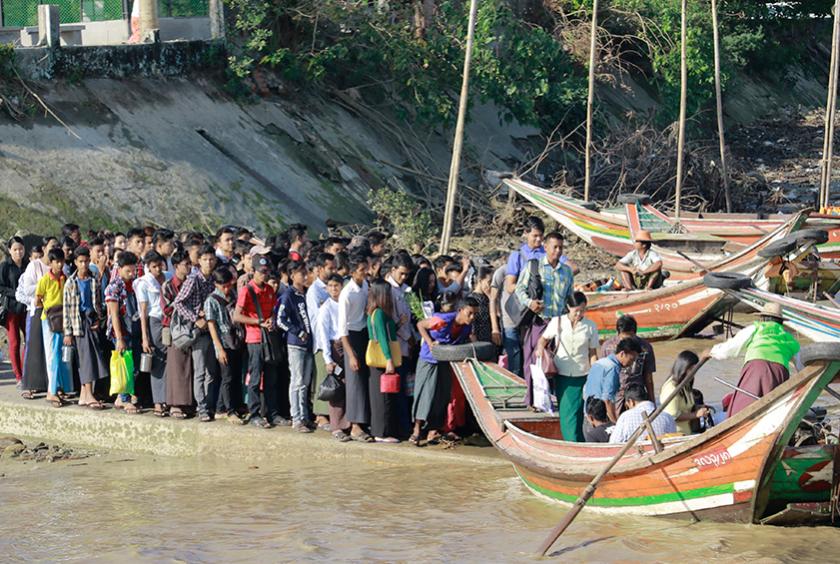Yangon, October (23)
Economists and businessmen have warned that international money-laundering watchdog, the Financial Action Task Force (FATF)’ blacklisting of Myanmar will make lives more difficult for the people.
The FATF announced on October 21 that Myanmar has been placed on the blacklist from the gray list for failing to address a large number of strategic deficiencies in its anti-money laundering and counter terrorist-financing systems. But these measures won’t negatively impact humanitarian assistance and nonprofit organizations’ activities.
Myanmar has become the third country, after North Korea and Iran, to be blacklisted by the FATF.
According to an economist, in Myanmar, where the country’s economy and manufacturing had already been declining prior to its inclusion on the FATF blacklist, this action could make people’s lives more difficult.

Daw Than Than Swe, Chairman of the regime’s Central Bank, stated in the third week of September that he was attempting to delist the gray lists by the global FATF, but the country has now been added to the FATF’s blacklist.
Businessmen pointed out that, consequently, foreign investment prospects are dwindling and job opportunities are likely to be scarce in the country.
A businessman claimed that as a result of the financial blacklist, Myanmar’s trade relations with international economies may weaken and its participation in the world market may be narrowed. In addition, the increased value of the dollar will make it more challenging to import fuel oil.
After FATF put Myanmar on the blacklist, currently, Myanmar currency has risen to around 4,000 kyats per US dollar in the open market, with nearly 100 Myanmar kyats per Thai baht.
Businessmen and financial experts believe that there will be fewer opportunities to get international economic assistance and that the flow of funds associated with international organizations may be limited.
Myanmar was on the FATF’s gray list in 2016, but has since been moved back to the black list.
News – Than Lwin Times

